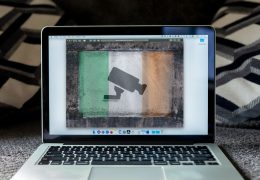Blocking of innocent websites by O2 Ireland
[Cross-posted from EDRiI-Gram]
The Irish mobile operator O2 has acknowledged accidentally blocking the
image hosting website IMGUR through its system for blocking alleged child
abuse material. There appears to have been no indication that there was, in
fact, any illegal material hosted on that site. Furthermore, it is not
obvious on what basis O2 could have made the decision to undertake the
blocking.
In a statement provided to the Irish hotline, which was not published but
simply made available to people who enquired about the problem, O2 explained
that “the technology behind the service (to block child abuse images) is
more far reaching than anticipated and on occasion a site which should not
be blocked may be.” It is impossible to tell how many other innocent, but
smaller and therefore less noticeable, websites are similarly blocked by
accident, due to this “far reaching technology.”
O2 undertakes its blocking system on a voluntary basis, despite the fact
that, according to the European Commission, “such measures must indeed be
subject to law, or they are illegal”(according to the Commission’s impact
assessment on the draft Directive on child exploitation). Nonetheless, the
European Commission is also now supporting such extra-judicial measures and
it is now also proposing to use taxpayers’ money to fund them.
A six million euro call for proposals launched in June 2010 refers to
funding for “blocking access to child pornography OR blocking the access to
illegal Internet content through public-private cooperation”. This call, by
the Commission, for “self-regulatory” blocking of allegedly illegal content
in general was made just a few weeks after Commissioner Malmström explained
at a conference that “the Commission has absolutely no plans to propose
blocking of other types of content – and I would personally very strongly
oppose any such idea”.
It is likely that further deliberate and accidental blocking of websites
will now spread in Ireland, due to the fact that the Irish former monopoly
Eircom agreed to block sites accused of containing unauthorised material,
while mobile operator Vodafone has reportedly also indicated that it will
introduce extra-judicial measures against any of its customers repeatedly
accused of infringements.
Many blogs and online message boards accused the Irish Internet hotline of
having prepared a faulty blocking list and this was what led to IMGUR being
blocked. As the Irish internet hotline does not prepare a blocking list, but
simply acts in its capacity as a hotline, these allegations were incorrect.
Background links:
Commission impact assessment – Accompanying document to the Proposal for a
Council Framework Decision on combating the sexual abuse, sexual
exploitation of children and child pornography, repealing Framework Decision
2004/68/JHA – Impact assessment {COM(2009) 135} {SEC(2009) 356 (25.03.2010)
http://eur-lex.europa.eu/LexUriServ/LexUriServ.do?uri=CELEX:52009SC0355:EN:NOT
Irish Internet hotline
http://www.hotline.ie
Vodafone in line to join file-sharing clampdown (16.06.2010)
http://www.irishtimes.com/newspaper/ireland/2010/0616/1224272615990.html
European Commission call for proposals: “Prevention of and fight against
crime”
http://ec.europa.eu/justice_home/funding/isec/doc/tc2_call_2010_en.pdf
Commissioner Malmström speech: “Combating sexual abuse, sexual exploitation
of children and child pornography: the Commission’s proposed Directive”
(6.05.2010)
http://ec.europa.eu/commission_2010-2014/malmstrom/archive/Speech%20%20Malmstrom%20-%20Combating%20sexual%20abuse%2006_05_2010.pdf
[By Joe McNamee – EDRi]

